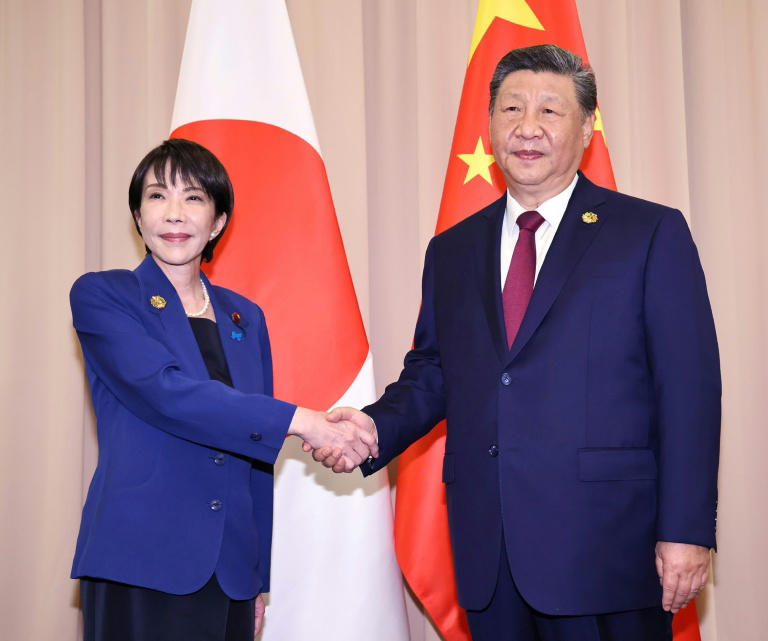GYEONGJU, South Korea, Nov 1, 2025 (BSS/AFP/Japan Today) – Japan’s new Prime Minister Sanae Takaichi said she raised “serious concerns” with Chinese President Xi Jinping regarding the South China Sea, Hong Kong, and the situation in East Turkistan, during their first summit on Friday in Gyeongju, South Korea.
In her first face-to-face meeting with Xi since taking office, Takaichi emphasized the need for “direct and candid dialogue” between Tokyo and Beijing while calling for a “strategic and mutually beneficial relationship.” The two leaders agreed to strengthen cooperation in areas of shared interest but acknowledged significant differences on key regional and human rights issues.
“I expressed serious concerns regarding actions in the South China Sea, as well as the situations in Hong Kong and the Xinjiang Uyghur Autonomous Region,” Takaichi told reporters after the meeting, referring to the region commonly known as East Turkistan. She also urged China to release detained Japanese nationals, ensure the safety of Japanese expatriates, and ease export controls on rare earth elements critical to advanced industries.
Xi, according to Chinese state media, responded by expressing hope that Japan’s new administration would maintain a “correct understanding” of China and uphold the “general direction of peaceful, friendly, and cooperative relations.” He reminded Japan to respect historical agreements between the two nations.
The Japanese prime minister also addressed maritime disputes in the East China Sea, including tensions surrounding the Senkaku Islands (known as the Diaoyu in China), where patrol vessels from both countries often confront each other. Tokyo maintains the islands are an inherent part of Japanese territory, while China and Taiwan both claim sovereignty.
On the Taiwan issue, Takaichi reiterated that peace and stability across the Taiwan Strait are essential for regional security. “Maintaining good cross-strait relations is vital for stability in this region,” she said.
Takaichi further urged China to lift restrictions on Japanese seafood and beef imports and to adopt a “positive approach” toward easing import bans on products from ten Japanese prefectures.
Xi’s meeting with Takaichi came shortly after both leaders held separate talks with U.S. President Donald Trump at the APEC summit. Analysts said the exchange reflected a cautious attempt by both sides to stabilize ties despite deep-seated tensions.
“It could be a frosty get-to-know-you meeting,” noted Yee Kuang Heng, a professor at the University of Tokyo’s Graduate School of Public Policy, speaking to Japan Today before the summit. “But overall, stability is a shared priority.”
Takaichi, Japan’s first female prime minister and a known China hawk, has long advocated stronger ties with Taiwan and increased defense cooperation with the United States. Her administration has pledged to raise defense spending to two percent of GDP—two years ahead of schedule—amid growing regional challenges.

